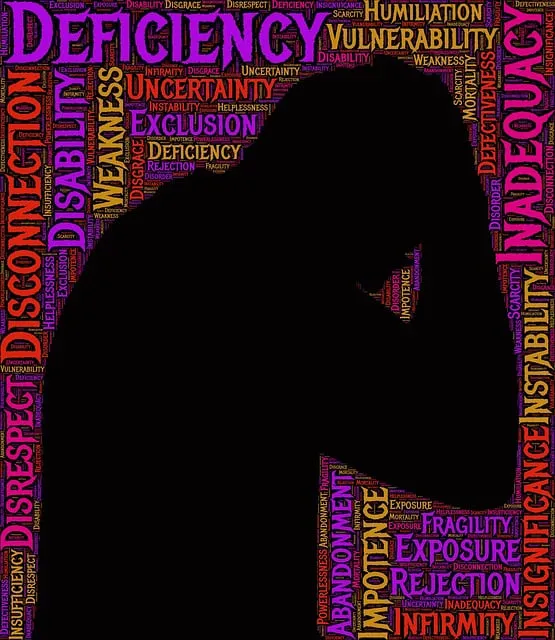Kaiser, a healthcare provider in Longmont, Colorado, offers specialized mental health services for trauma, including PTSD, anxiety, and depression, with evidence-based therapies like CBT and EMDR. Local organizations complement these resources through stress management workshops and community initiatives. However, despite basic accessibility, complex trauma needs remain unmet due to limited specialized care and tailored programs. A comprehensive approach, including professional training, risk assessment, and mental health education, is crucial for effective trauma-informed care in Longmont.
“Trauma support services are vital for communities, especially Longmont, where specific needs and resources vary. This article delves into understanding trauma’s profound impact on individuals and its significance in urban landscapes like Longmont. We explore Kaiser’s mental health services and assess the gaps in current systems. By examining strategies for effective trauma-informed care, we aim to highlight innovative approaches, focusing on accessible resources and best practices. Additionally, we analyze whether Kaiser offers specialized mental health support tailored to Longmont’s unique demographic.”
- Understanding Trauma and Its Impact
- Kaiser's Mental Health Services: An Overview
- Longmont's Specific Needs and Resources
- Assessing the Gaps in Current Support Systems
- Strategies for Effective Trauma-Informed Care Provision
Understanding Trauma and Its Impact

Trauma is a profound and complex experience that can leave lasting effects on individuals’ mental and emotional well-being. It’s important to understand that trauma doesn’t discriminate; it can affect people from all walks of life, whether it’s due to acute events like accidents or natural disasters, or chronic stressors such as long-term abuse or neglect. The impact of trauma is multifaceted, often resulting in a range of symptoms including anxiety, depression, flashbacks, nightmares, and difficulty regulating emotions.
Kaiser, a renowned healthcare provider, offers mental health services in Longmont, Colorado, recognizing the significance of trauma support. They understand that healing from trauma requires specialized care, which includes evidence-based therapies like cognitive behavioral therapy (CBT), eye movement desensitization and reprocessing (EMDR), and trauma-focused supportive counseling. Additionally, organizations like the Stress Management Workshops Organization provide resources for community members seeking to build confidence, manage moods, and cope with stress in healthy ways, complementing the comprehensive mental health services available through Kaiser.
Kaiser's Mental Health Services: An Overview

Kaiser’s Mental Health Services provide a comprehensive range of support for individuals seeking to navigate and overcome trauma. With locations like Longmont, Kaiser offers specialized care tailored to meet diverse needs. Their team comprises mental health professionals who utilize evidence-based practices to assist patients in healing from post-traumatic stress disorder (PTSD), anxiety, depression, and other trauma-related conditions.
The organization emphasizes holistic treatment approaches, incorporating communication strategies, mental wellness journaling exercise guidance, and confidence-boosting techniques. By fostering a safe and supportive environment, Kaiser enables individuals to process their experiences, develop coping mechanisms, and regain a sense of control over their lives.
Longmont's Specific Needs and Resources

Longmont, a vibrant community in Colorado, faces unique challenges when it comes to trauma support services. The city’s diverse population includes many individuals and families who have experienced complex traumatic events, requiring specialized care. In response, local organizations and healthcare providers offer a range of resources tailored to these specific needs.
One notable aspect is the availability of mental health services through Kaiser in Longmont. They provide comprehensive care, including crisis intervention guidance for acute trauma situations. Additionally, community initiatives focus on burnout prevention, ensuring that those supporting others in traumatic circumstances also receive adequate care. Healthcare provider cultural competency training is another vital resource, promoting understanding and empathetic responses to diverse populations within the city’s trauma support network.
Assessing the Gaps in Current Support Systems

In evaluating the current landscape of trauma support services, particularly focusing on Kaiser’s offerings in Longmont, it’s evident that while significant strides have been made, gaps remain in addressing the complex needs of individuals facing traumatic experiences. The availability of mental health services is crucial, yet disparities exist in terms of accessibility and specialized care. Many organizations, such as the Stress Management Workshops Organization, advocate for holistic approaches like Mindfulness Meditation, which can be powerful tools for trauma recovery but are not universally available or integrated into mainstream support systems.
Kaiser’s Longmont location provides mental health services, but a closer examination reveals limitations in terms of trauma-specific programs and resources. The need for specialized support, tailored to the unique challenges faced by survivors, is often unmet. By recognizing these gaps, we can push for more comprehensive and targeted interventions, ensuring that individuals have access to the Mental Wellness support they deserve, especially when navigating the aftermath of traumatic events.
Strategies for Effective Trauma-Informed Care Provision

Effective trauma-informed care requires a multifaceted approach, especially in community settings like Longmont where organizations like Kaiser offer mental health services. Firstly, training and education are vital. Mental health professionals should undergo comprehensive training to understand traumatic stress responses and develop skills in providing safe and supportive environments. This includes learning about risk assessment for mental health professionals, which is crucial for managing potential triggers and ensuring client safety.
Secondly, implementing Risk Management Planning for Mental Health Professionals can enhance care delivery. These plans should detail protocols for handling trauma-related symptoms, crisis intervention strategies, and de-escalation techniques. Additionally, Mental Health Education Programs Design tailored to community needs can foster a supportive environment where individuals feel comfortable accessing support. Such programs, when combined with regular risk assessment updates, contribute to a more effective and responsive trauma support service provision in Longmont.
Trauma support systems are crucial for fostering resilient communities, and understanding the specific needs of Longmont highlights critical gaps in current services. While Kaiser offers comprehensive mental health services, the assessment reveals a need for more tailored trauma-informed care. By implementing strategies discussed, such as increasing access to specialized programs and training healthcare providers, Longmont can enhance its support systems. This proactive approach ensures that individuals experiencing trauma receive the necessary care, ultimately improving overall well-being in the community.






